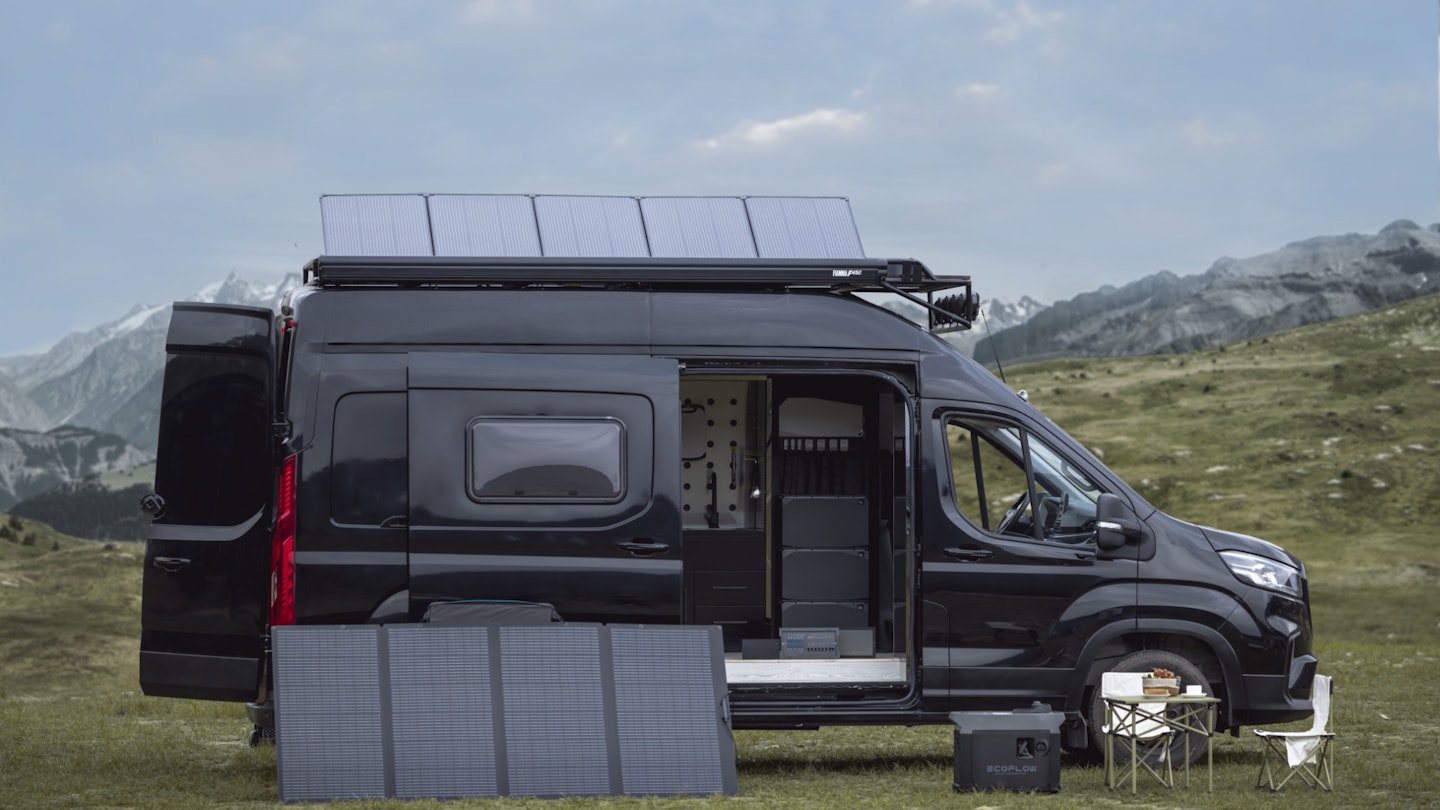Although many modern campervanners adore the concept of unplugging from the world as they meander around in their motorhome, it’s not entirely accurate. Having a reliable power source is more important than ever, so it’s less a case of unplugging and more a case of taking the plug with you that can work off-grid when needed.
That’s simple enough in principle but in reality, it’s been a rather complex task. To install a flexible power supply in a campervan usually demands the expertise of a professional, which drives up cost and becomes unappealing.
However, portable power and renewable energy solutions company EcoFlow has created a configurable, compact, efficient, and simple power system designed for campervans and homes that addresses this.
Introduce me to EcoFlow
EcoFlow is a producer of portable power stations, founded in 2017. Today, EcoFlow sells its products in more than 40 countries in Europe and over 100 markets globally. But alongside its portable power stations, EcoFlow now offers a modular Power Kit system designed for campervans and off-grid houses.
What are EcoFlow Power Kits?
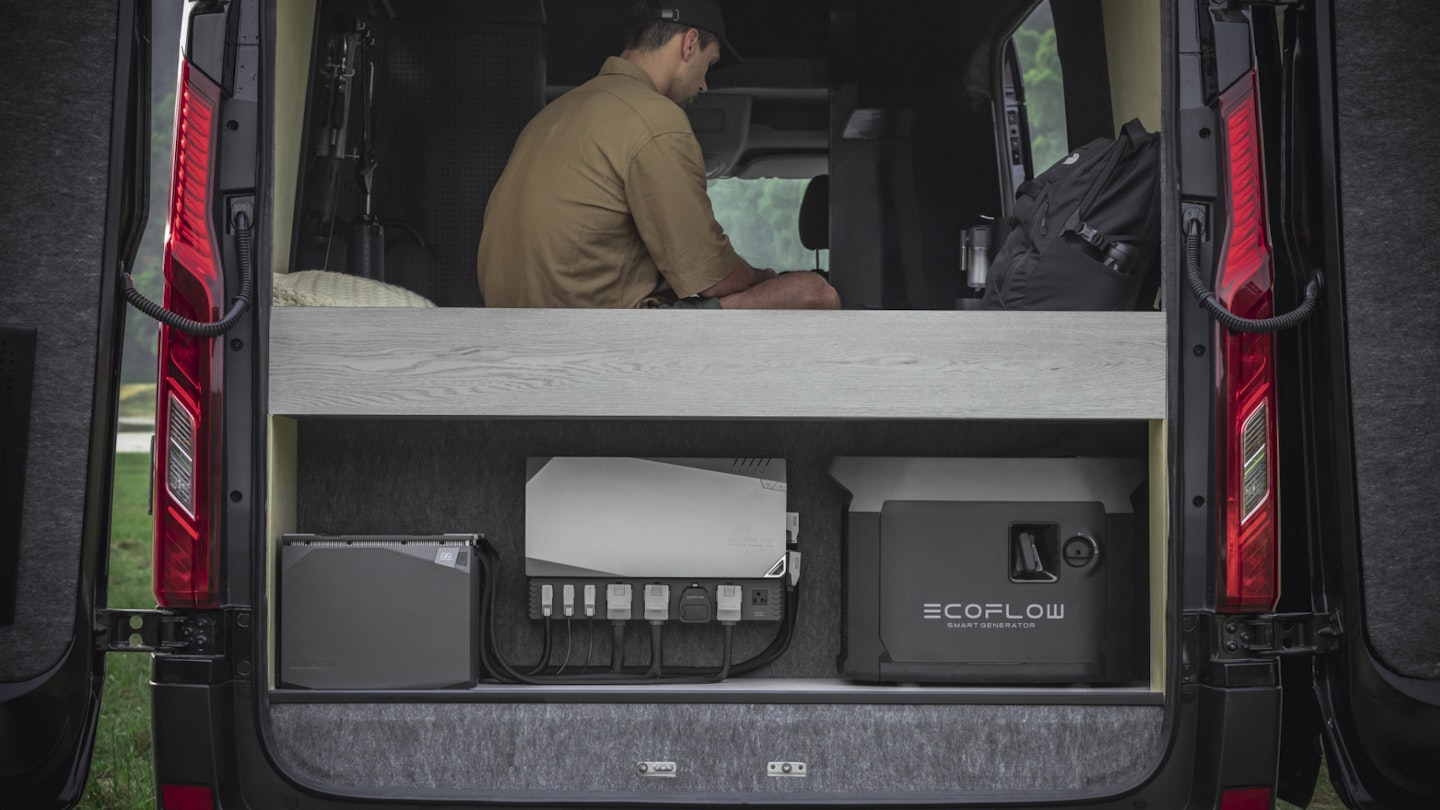
Sometimes wording around power supplies and power systems can be somewhat abstract, leaving you wondering exactly what they do. EcoFlow’s new Power Kit is a customisable 48V power system that manages, stores, and distributes electricity in a campervan or home.
What makes the Power Kit stand apart from others is that it allows flexibility when it comes to a power source and is simple enough for users to easily install themselves.
Looking at campervans specifically, the power source for the Power Kit can come from EcoFlow solar panels, EcoFlow Smart Generator or other gas generators, a vehicle alternator, shore power outlets or the mains. Thus allowing for on and off-grid living. Power generation is then controlled by the Power Hub, which combines what has traditionally been the task of a solar or DC-DC charger, and inverter/DC-DC converter.
This power can then be stored in EcoFlow’s 2kW and 5kW lithium iron phosphate (LFP) batteries. The former is about the size of a small home office printer and suitable for smaller campervans, while the latter is a bit larger and suits bigger campervans. Users can connect up to three of these batteries, which offers a storage capacity of between 2kWh and 15kWh per kit. With the full 15kWh, users can have 18 hours of power for their campervans without the need for any power source.
Users can then hook up their DC and AC devices, and easily monitor and control power usage, generation, and other similar things through the optional AC/DC Smart Distribution Panel and EcoFlow app.
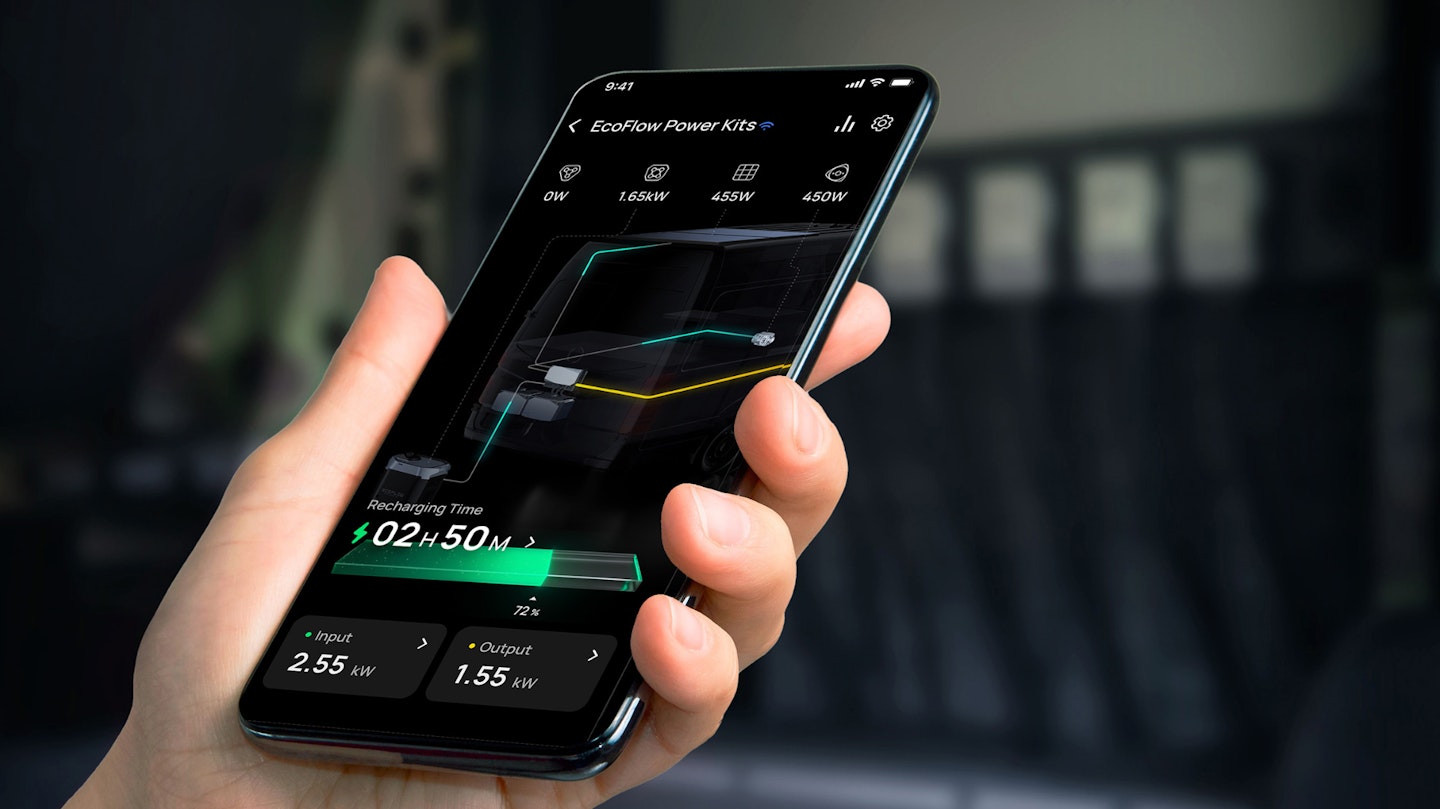
This design is simpler and more compact than other power systems. But what also makes the Power Kit system highly appealing to campervanners is the customisable nature of the design. Depending on users’ requirements, those running a smaller or low power consumption campervan can get what they need just as much as those who run a larger or more power-hungry setup.
The EcoFlow solar panels
As mentioned, one of the ways to power the EcoFlow Power Kit is via EcoFlow’s solar panels. EcoFlow offers multiple types: a rigid 100W panel, flexible 100W panel, and rigid 400W panel, for example. The 100W Flexible Solar Panel is of particular interest to campervanners because it can simply be glued onto a roof, without the need for any drilling. It is also lightweight at just 1.9kg and measures 1219 x 546 x 2mm. Yet, users still reap the same performance benefits as the heavier 100W Rigid Solar Panel.
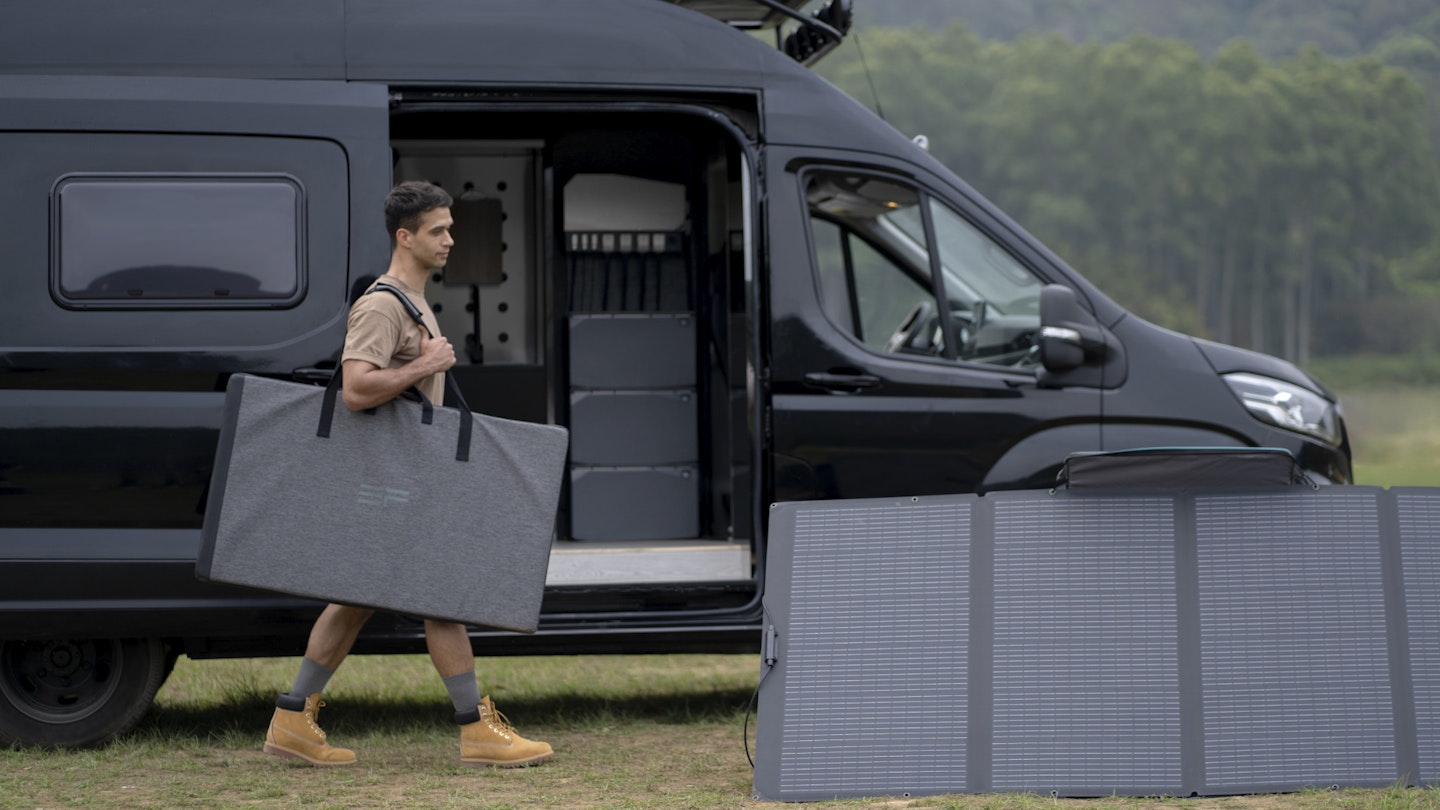
When the need arises to charge up, it can be done quickly. Using the solar panels, users can get up to 4800W of solar input. Consequently, three of the 5kWh LFP batteries can be charged in about three hours, for example.
Why use a 48V system?
EcoFlow has opted to use a 48V instead of a traditional 12V system for a few key reasons. It helps make the whole system more compact because it can use thinner cables than a 12V system. This is due to a 48V having less current flowing through it. The 48V system also suffers less heat loss than a 12V system.
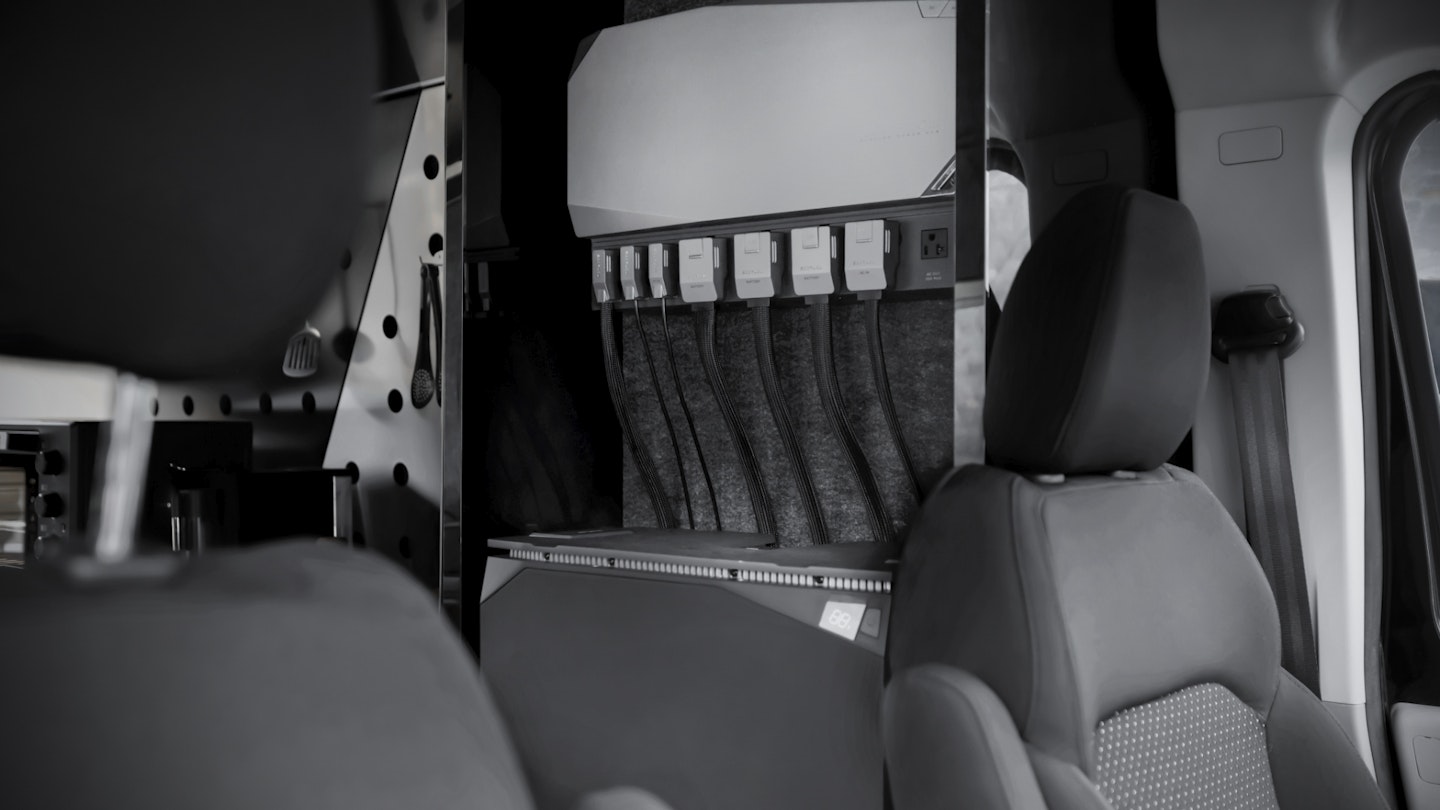
Nevertheless, the 48V system can still allow the EcoFlow Power Hub to have a maximum output of 3600W. This is enough to cater for power-intensive appliances and devices such as air conditioners, water heaters, and hair dryers.
It also lets those who already have a power system installed in their campervan convert to an EcoFlow Power Kit because it comes with a DC-DC step-down module.
EcoFlow Power Kit bundle pricing
EcoFlow offers a range of Power Kit capacities at three levels. The Get Set bundle includes an EcoFlow Power Hub and LFP batteries. The Premium Kit then adds the AC/DC Smart Distribution Panel. The Ultimate Kit also adds the Power Kit Console and EcoFlow Smart Generator.
2kWh Power Kits: £4398-£6725
4kWh Power Kits: £6397-£8773
5kWh Power Kits: £6598-£8925
10kWh Power Kits: £10,797-£13,173
15kWh Power Kits: £14,996-£17,421
